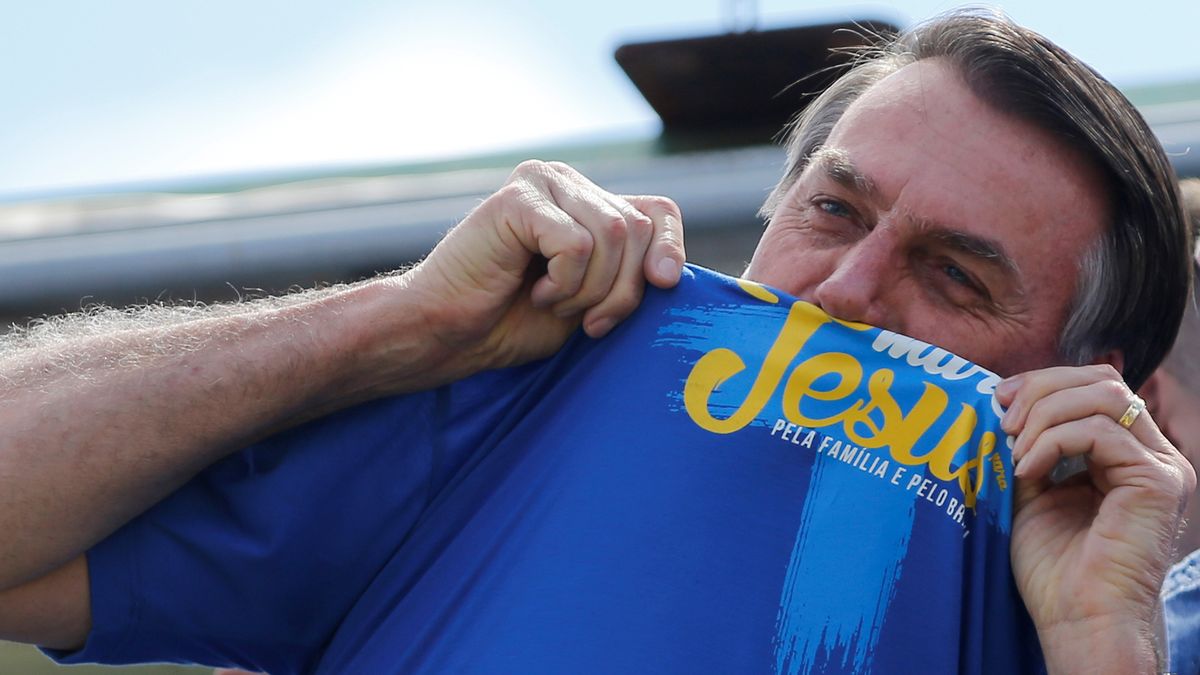She is far from the only evangelical Christian in Brazil who has to deal with this delicate matter. Although Bolsonaro and his allies have worked to transform the country’s evangelical churches into the bedrock of his political basisthis year’s campaign has shown the limits of this electoral strategy.
After the ultraconservative won the evangelical vote two to one in 2018, many evangelicals -especially the poorest women- are considering voting for Lula da Silvawhose legacy of generous social programs appeals strongly to Brazil’s less affluent voters.
Until a few months ago, both were tied among evangelical voters, according to the pollster Datafolha. Despite the fact that Bolsonaro has cut Lula’s advantage in the heat of the campaign, it has cost him to overcome 50% of the evangelical vote in recent studies.
Lula da Silva and an alliance with progressive churches
Seeking to reinforce Lula’s “timid” vote among evangelicals, the Workers’ Party (PT) is teaming up with leftist pastors like Paulo Marcelo Schallenbergerwhose sermons seek to counter the “demonization” of the party in evangelical circles.
“We get a large number of people in the church who are going to vote for Lula, but they don’t admit it because if they do, they will be persecuted by their churches and expelled,” Schallenberger told Reuters, reflecting on his own experience of being ostracized. by his colleagues for his politics.
In fact, many of Brazil’s evangelical churches and their high-profile pastors have embraced Jair Bolsonaro, who defends the traditional family structurespromises to fight right to abortion and casts his rivals as communist “demons” in rhetoric in the style of the Cold War.
The president has punctuated his public agenda with almost daily acts with religious leaders. His campaign has created a prominent role for his third wife, Michellewho wears his evangelical Christian faith with pride in the campaign.
For many evangelical Christians, however, the fiery partisan rhetoric of conservative pastors is alienating them from traditional megachurches and their powerful pastors.
Elections in Brazil evangelical vote
Photo: Reuters
Towards a diverse evangelical church
Political polarization contributes to the fact that about 20% of evangelical Brazilians declare themselves “without a church” in the last census, according to Rodolfo Capler, a Baptist pastor and researcher at the Pontifical Catholic University of Sao Paulo.
As the evangelical population grows rapidly — from 20% of Brazil in 2010 to about 30% today, on track to outpace the current Catholic majority in about a decade — it is also becoming more diverse, Capler said. .
“Independent churches are paving the way for new generations. They are creating freer environments in which people can express their thoughts, sexualities and political beliefs,” she said.
While the parishioners pray stoically in the pews of the Assembly of God of Recifethe scene on the other side of the Capibaribe river, in the Mangue Churchtells a different story: young adults share their life stories during worship as a barefoot, T-shirt-wearing pastor sits between them.
“It’s a refuge where I can be myself among so many different people, understanding that the kingdom of God is not uniformity, but diversity in unity,” says Nery.
Source: Ambito
David William is a talented author who has made a name for himself in the world of writing. He is a professional author who writes on a wide range of topics, from general interest to opinion news. David is currently working as a writer at 24 hours worlds where he brings his unique perspective and in-depth research to his articles, making them both informative and engaging.




